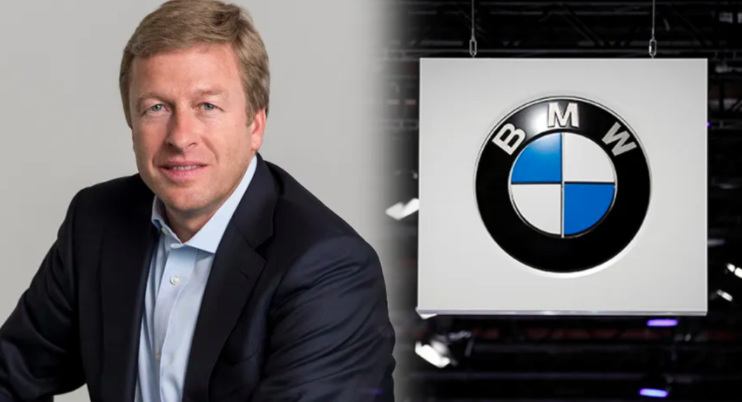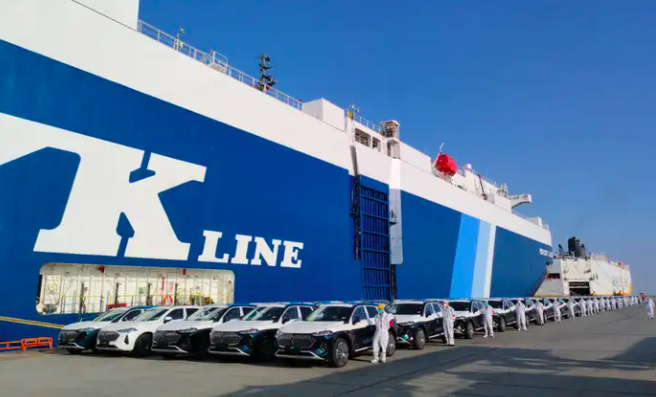The EU's Temporary Tariffs Take Effect, an Unpopular Robbery!
![]() 07/08 2024
07/08 2024
![]() 611
611
On July 4th local time, the European Commission announced the implementation of temporary countervailing duties on pure electric vehicles imported from China starting from July 5th.

Among them, BYD faces an additional tax rate of 17.4%, Geely Automobile 19.9%, and SAIC Motor 37.6%. For other automakers that cooperated with the EU investigation, the average additional tax rate is 20.8%; while companies that did not cooperate with the investigation will face a tax rate of 37.6%. Additionally, Tesla may receive a separately calculated tax rate at the final stage.
Compared to previous rates, the final tax rates have been adjusted downward. Previously, the EU imposed tariffs of 17.4%, 20%, and 38.1% on BYD, Geely Automobile, and SAIC Motor, respectively.
Some believe that the EU's slight adjustment of tax rates for SAIC Motor and Geely Automobile may be due to them providing new evidence, but the reduction is not significant, which is regrettable.
It is understood that the normal tariff rate for passenger cars in the EU is 10%.
The imposition of temporary tariffs will last for a maximum of four months. During this period, EU member states need to vote on this temporary measure to make a final decision. It is reported that member states will vote in writing within 14 days after the official notification is issued. If the temporary tariff measure is approved, the new tariff will apply for five years.
Currently, the EU and the Chinese government are still seeking a solution compliant with WTO rules through technical discussions. In addition, there are many opponents of the tariff increase within Europe, including the German Association of the Automotive Industry, relevant automakers, and some member states.
In the future, there will be even greater turmoil surrounding the EU's tariff increase.
An Unpopular Tax Increase
Within the EU, the strongest opponents of the tariff increase are the Germans. The German Association of the Automotive Industry has already spoken out twice.
Just one day before the announcement of the EU's tariff increase (July 3rd), the German Association of the Automotive Industry issued a statement strongly opposing the EU's imposition of countervailing tariffs on Chinese electric vehicles. The association believes that this will have a negative impact on European consumers and companies, is not in line with the long-term interests of the EU, and will hinder the development of the European electric vehicle market and the achievement of climate goals.
In fact, since June 12th, when the EU announced plans to impose temporary tariffs on Chinese electric vehicles, the German Association of the Automotive Industry (VDA) has expressed opposition. The association believes that the EU's tariff increase will not only affect Chinese manufacturers but also European companies and their joint ventures.
As China may initiate countermeasures by imposing tariffs on imported cars with engine displacements over 2.5 liters, according to data from the German Association of the Automotive Industry, in 2023, German automakers exported 216,299 cars to China, of which about one-third had engine displacements exceeding 2.5 liters. In 2023, the value of German passenger cars exported to China was 15.1 billion euros, while the value of passenger cars imported from China was 4 billion euros; the value of auto parts exported to China by German automotive suppliers was 11.2 billion euros, and the value of imported parts from China was 2.8 billion euros.
In addition, the EU's tariff increase will increase the cost of electric vehicles in Europe, which will be passed on to consumers.

At the corporate level, executives from BMW, Mercedes-Benz, Volkswagen, and other companies have explicitly opposed the EU's tariff increase. BMW Group Chairman Oliver Zipse said, "Imposing tariffs will hinder the development of European automakers." Mercedes-Benz stated that if protectionism is allowed to rise, it will have negative consequences for all stakeholders; Volkswagen said, "In the long run, imposing countervailing tariffs is not conducive to enhancing the competitiveness of the European automotive industry. We oppose this decision."
On July 4th, the EU Chamber of Commerce in China issued a statement firmly opposing this trade protectionism move driven by political factors; the German Chamber of Commerce Abroad previously released a report stating that 61% of German companies believe that price pressure brought about by fierce competition is the main challenge facing German companies in China, and the EU's tariff increase will only have the opposite effect.
On the Chinese side, He Yadong, Deputy Director of the General Office of the Ministry of Commerce and spokesperson, stated that China has repeatedly expressed strong opposition to the EU's anti-subsidy investigation into Chinese electric vehicles and advocated properly handling economic and trade frictions through dialogue and negotiation. Currently, there is still a four-month window before the final ruling. It is hoped that the EU and China will work together, demonstrate sincerity, expedite the negotiation process, and reach a mutually acceptable solution based on facts and rules as soon as possible.
As the saying goes, a stone casts a thousand ripples. The EU's tariff increase has indeed put itself in an unpopular position, offending almost everyone from companies to consumers to member states. There must be something unusual about this, which is indeed intriguing.
Political Considerations Over Economic Purposes
The most direct reason for the EU to increase tariffs on China's new energy vehicles is that China's new energy models are very competitive in price while ensuring excellent products.
A UBS report shows that compared to electric vehicles from other countries, China's new energy vehicles have a 30% price advantage. The price of the all-new entry-level Pure model of the Volkswagen ID.3 is 36,900 euros, while the starting price of the MG4 with the same size is 28,400 euros; in April, BYD announced that the Seagull would be launched in Europe next year, with an expected price in Europe of less than 20,000 euros (equivalent to approximately 156,800 yuan, which is almost double the domestic price), but compared with similar products in Europe, the Seagull still has a price advantage.
Currently, the average price of electric vehicles on the European market is over 35,000 euros. In comparison, current European counterparts indeed lack competitiveness.
To this end, multinational automakers such as Stellantis, Renault, Volkswagen, Hyundai Motor, and Tesla have plans to launch affordable electric vehicle models priced around 20,000 euros. For example, Citroen plans to launch the urban version of the e-C3 in early 2025 with a starting price of 19,990 euros, and the Renault brand will also launch the mass-produced Renault 5 small electric car, with an approximate price of 20,000 euros.
However, the problem is that these models have not yet been launched and will need to wait for some time.
In the eyes of European politicians, they need to leave enough room for development for their own brands. Objectively speaking, this approach is understandable, but market participants like Volkswagen, Mercedes-Benz, and BMW oppose the tariff increase, while policymakers go against the grain, indicating that political purposes outweigh economic purposes.

Facing the EU's tariff increase, many Chinese automakers have expressed their intention to build factories in Europe and cooperate with European automakers to bypass tariffs and minimize losses.
In April this year, Chery signed a contract with Spanish automaker Ebro-EV Motors to establish a joint venture factory in Spain, planning to start production in the fourth quarter of 2024; due to the annual sales of the MG brand exceeding 200,000 vehicles in 2023, SAIC Motor has started selecting a factory location; Geely already has the ability to produce locally in Europe; BYD announced in December 2023 that it will build a new energy passenger car factory in Hungary, which will be completed and put into operation within three years, with a designed annual capacity of over 100,000 vehicles; Zero Run International has already assembled the first batch of T03 at Stellantis' Polish factory and will begin mass production in September.
Here, we should admire the execution of Chinese automakers, but we should not ignore a potential danger. Currently, political considerations outweigh economic interests in Europe and the United States. Under this premise, it cannot be ruled out that the EU will still introduce new restrictive measures.
This point should be noted.
The EU's temporary tariff increase has a maximum duration of four months. During this period, EU member states need to vote on this temporary measure to make a final decision. There is still some time before the final decision, and during this period, it can be expected that various forces, including official and civilian, will undergo multiple rounds of competition. We will continue to observe.
People's Car Reviews
Whether it is the EU's obstacles or Chinese automakers' efforts to break through, an indisputable fact is that China's new energy vehicles are indeed ahead and have become the target of European automakers.
Judging from the development of automakers in Japan and South Korea, they have also undergone tests from their domestic markets to global expansion, such as various investigations and suppression by giants. This is inevitable. Of course, there are still differences between Japanese and Korean automakers and Chinese automakers. Chinese automakers have a more significant advantage with the power of the new energy transformation, and thus face greater pressure.
Market competition is like this, with risks and opportunities coexisting. Chinese automakers have just taken the first step.






